Introduction & Analysis
This collection of open-source English-language news articles published over the past week highlights significant events and issues concerning Myanmar. They present a grim picture of the safety and security landscape in Myanmar.
Airstrikes and Shelling: Junta forces are actively conducting airstrikes and shelling in response to attacks from resistance groups. These actions directly endanger civilians, as shown by the death of a 70-year-old man in a junta airstrike. The risk of civilian casualties and displacement remains high in conflict zones.
Forced Conscription: The KIA’s alleged practice of forcibly conscripting young men adds another layer of insecurity to the population. This not only deprives individuals of their freedom but also thrusts them into active combat, further escalating the conflict.
Humanitarian Crisis and Displacement: The armed conflicts have triggered a humanitarian crisis, forcing people to flee their homes and creating dire living conditions for those who are displaced. This is further exacerbated by the following.
- Restrictions on Movement: The junta’s restrictions on individuals leaving Sittwe and military checkpoints obstructing supplies intensify the suffering of displaced populations.
- Blockade of Medicine: The junta's blockade on medicine represents a serious violation of human rights and jeopardizes the lives of those who require medical care.
Scam Centers and Human Trafficking: The presence of scam centers along the Myanmar-Thailand border has fostered a breeding ground for criminal activity and human trafficking.
- Detention and Torture: Thousands of foreigners are being detained in these scam centers, with reports of torture and abuse.
- Cross-Border Crime: These scam centers are associated with other illegal activities, including drug trafficking and online gambling, which contribute to regional instability.
Digital Repression and Information Control: The Myanmar junta’s grip on the internet and digital communications remains a serious threat to freedom of expression and access to information.
- Internet Shutdowns: Frequent internet shutdowns in conflict zones prevent people from accessing crucial information and seeking help during military operations.
- VPN Ban: The VPN ban further restricts access to information and limits citizens’ ability to bypass censorship.
Geopolitical Implications:
- Chinese Security Firms: The new law permitting Chinese security firms to operate in Myanmar raises concerns about national sovereignty and the potential for increased Chinese influence.
- China's Role: China’s role in the peace talks, along with its connections to the junta and ethnic armed organizations, creates a complex dynamic that could either help reduce tensions or further intensify the conflict.
ASEAN
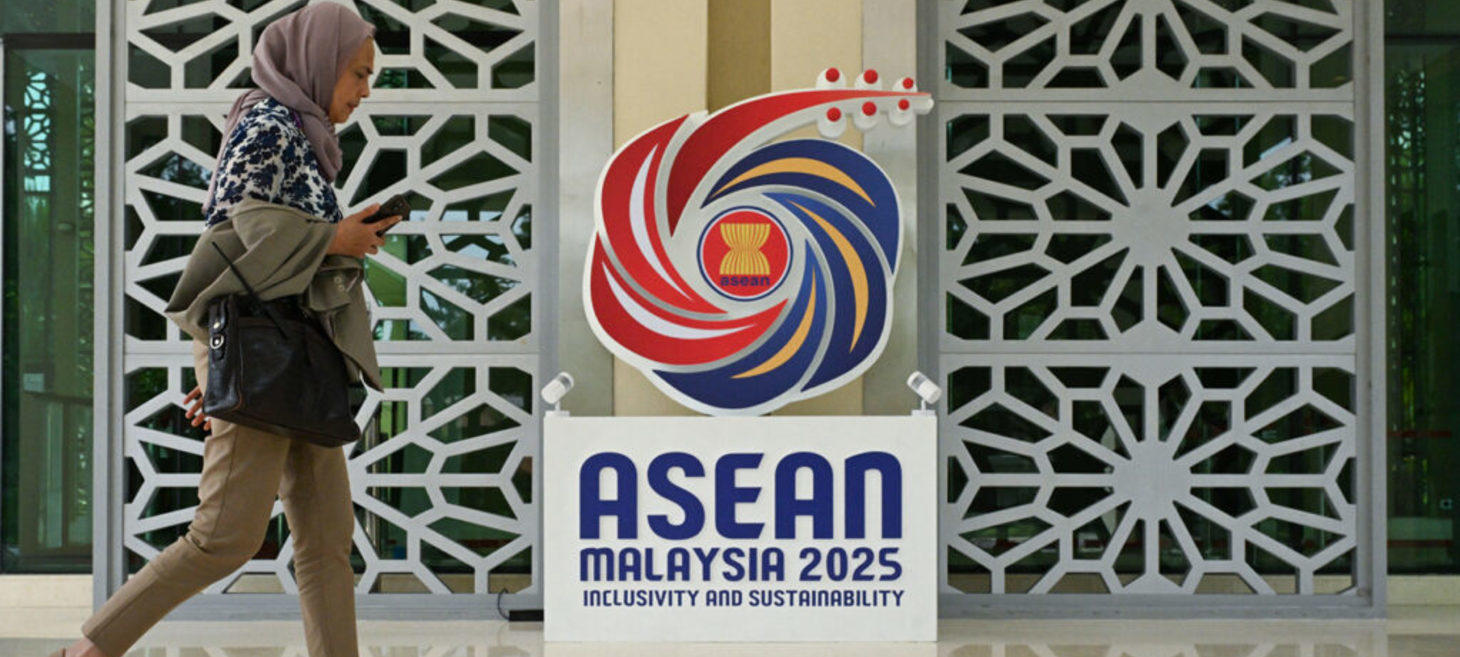
ASEAN’s Myanmar Peace Effort in Limbo After Envoy’s Visit
Othman Hashim, ASEAN's special envoy to Myanmar, made an unpublicized visit to Naypyitaw, Myanmar, where he declined to meet with junta boss Min Aung Hlaing, but did meet with junta Foreign Minister Than Swe. The reason for declining to meet with Min Aung Hlaing is unknown, but the Malaysian side requested a low-key trip with no publicity. The envoy then traveled to Bangkok for talks with revolutionary groups, focusing on the cessation of violence, delivery of humanitarian assistance, and inclusive dialogue, but his team expressed dismay when the details of the meeting were leaked. Myanmar joined ASEAN in 1997 with Malaysia's support, but the junta has failed to honor ASEAN's Five-Point Consensus for peace, leading to criticism. Unlike the previous envoy, Alounkeo Kittikhoun, Othman's visit was ignored by regime-controlled media, possibly at his request.
Conflict

AA, Myanmar junta engage in fierce fighting near Rakhine State’s largest naval base
Recent reports indicate ongoing fierce fighting between Myanmar's military junta and the Arakan Army (AA) near the Dhanyawadi Naval Base, the largest in Rakhine State. The clashes, which began around February 20, 2025, involve airstrikes by the junta on AA positions in villages such as Simaw and Kyattain. These conflicts have forced residents of nearby villages to flee, and at least one civilian has been killed due to the junta's airstrikes. The fighting is also occurring near major Chinese-backed sea-port and pipeline projects.
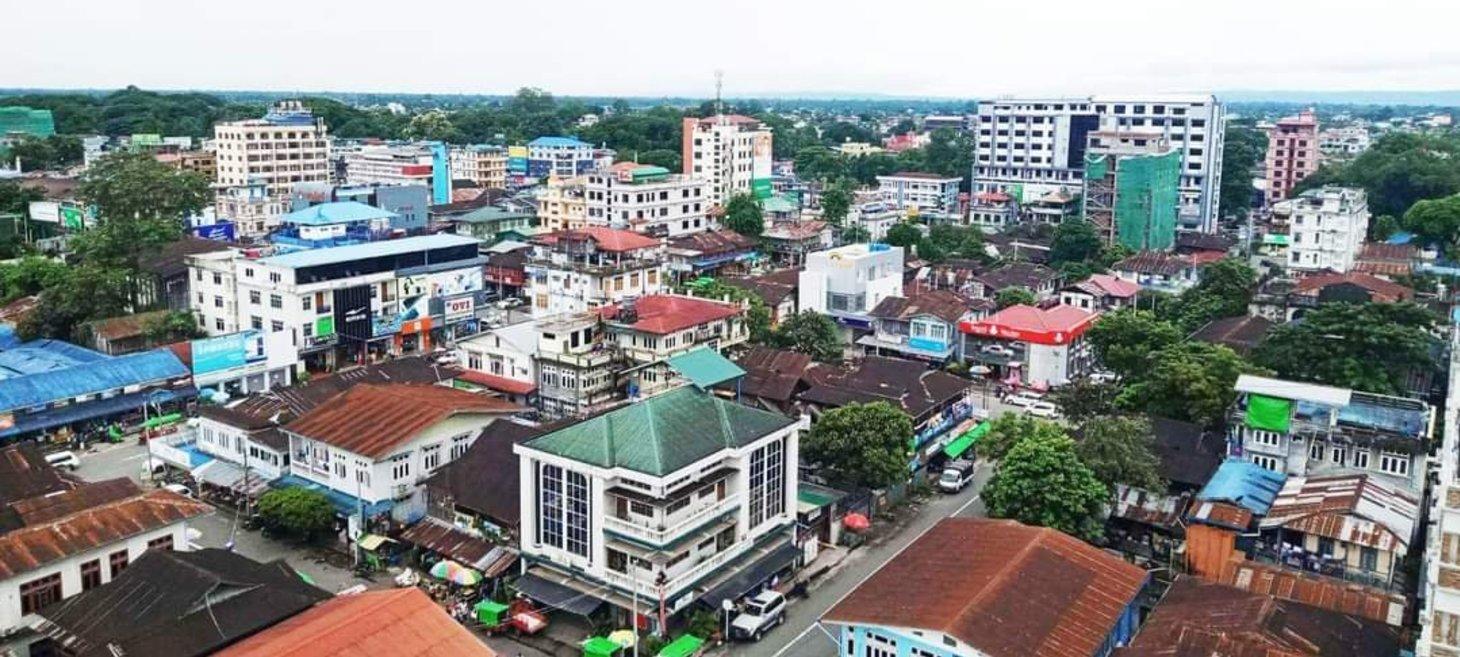
KNF Statements Call for Overthrow of Junta and Federal Union
The Kachin National Forum (KNF), comprised of 20 Kachin civil society organizations, issued statements on Myanmar's Independence Day and Kachin State Day in January 2025, calling for the overthrow of the junta and the establishment of a new federal democratic state with equal rights and self-determination. The KNF highlighted the historical oppression of the Kachin people and the junta's detrimental impact on the country's economic, political, and developmental status. They criticized the military coup's arbitrary actions and human rights violations, emphasizing the need to eradicate the military regime and its supporters. The KNF pledged to collaborate with local organizations, individuals, and international governments to dismantle the dictatorship and achieve a federal union, while also stressing the importance of guaranteeing women's rights in a future federal system.
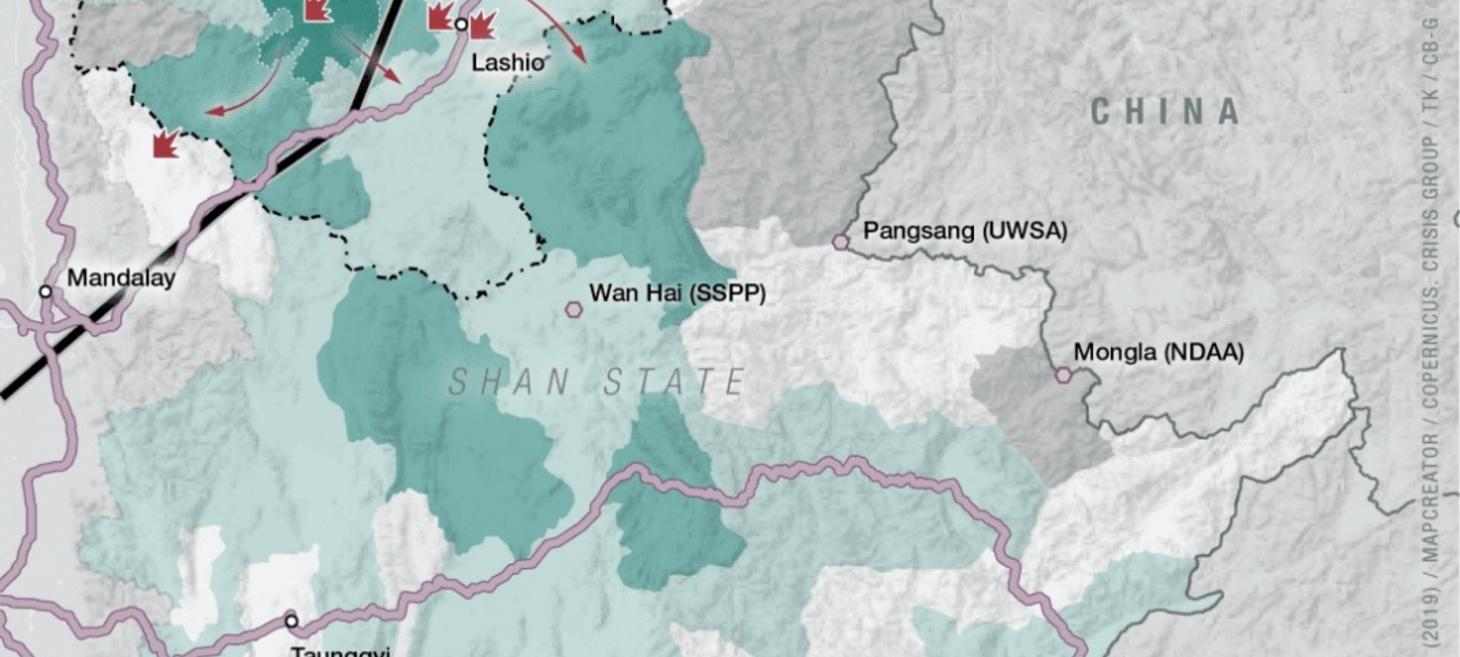
CHINESE BROKERED PEACE DIALOG: TNLA finally shows it’s real face
The Junta or State Administration Council (SAC) and Ta’ang National Liberation Army (TNLA) met in Kunming from February 16 to 17, 2025, due to China's insistence and brokerage to further its national interest. The TNLA delegation was led by Lieutenant General Tar Gu Jar and Colonel Tar Moe Hein, while Lieutenant General Ko Ko Oo led the junta’s delegation. During the meeting, the TNLA discussed a ceasefire in areas where both sides’ forces are present, a cessation of attacks, and permission for locals to transport medicine and food. The TNLA also demanded that 14 towns in northern Shan State be designated as Palaung State, including 12 towns under TNLA control. The junta responded that all ethnic state-level creation will have to go through the parliamentary process and according to the 2008 constitution. The Chinese government’s special representative adjourned the meeting to resume the discussion after the relevant organizations have made preparations.
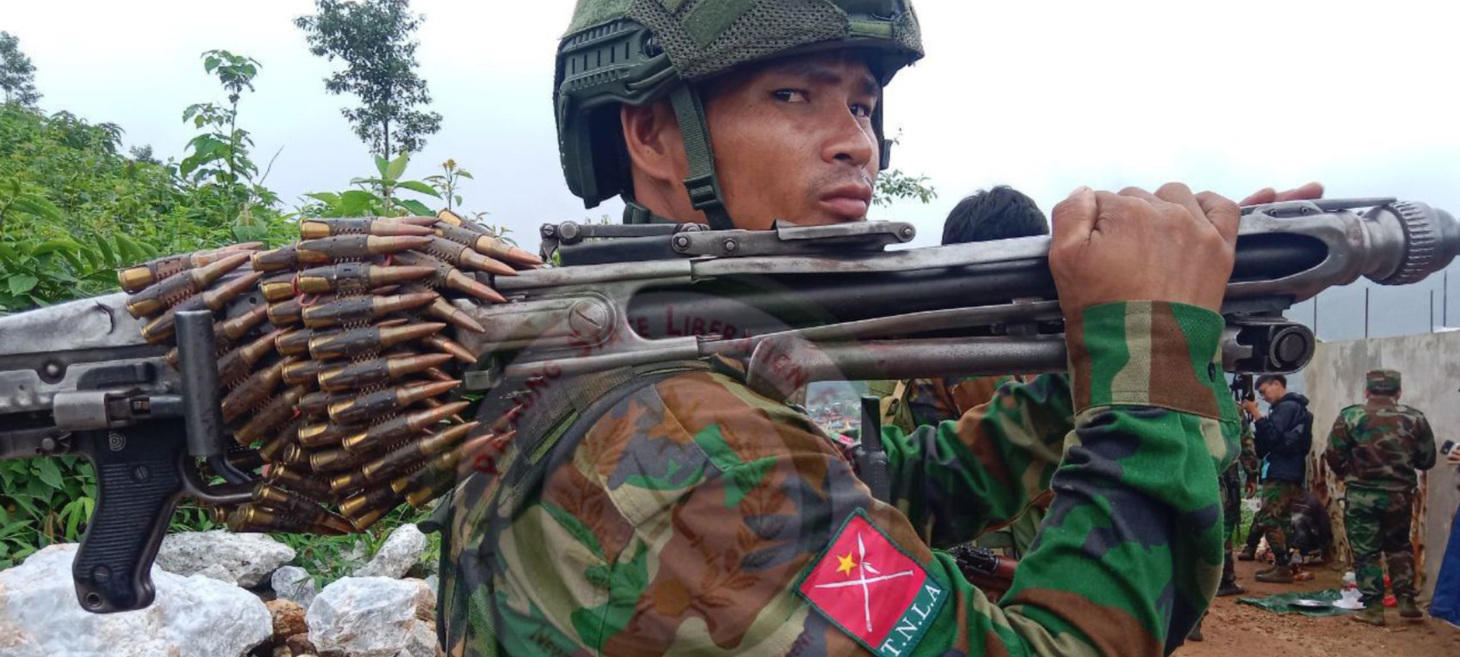
TNLA: Peace Talks With Myanmar Junta Have Failed
Peace talks between the Ta'ang National Liberation Army (TNLA) and Myanmar's regime in Kunming, Yunnan Province, China, have failed to reach an agreement. The TNLA proposed a halt to fighting to allow civilians access to essential supplies. China, aiming to force the Brotherhood Alliance (of which TNLA is a member) to negotiate, blocked border trade, which created hardships for civilians. The TNLA, as part of the Brotherhood Alliance, has gained control over much of northern Shan State since October 2023. They have also liberated territory in the Mandalay Region. Fighting has continued during these talks, with the regime conducting airstrikes on TNLA-controlled towns. Another member of the Brotherhood Alliance, the Arakan Army (AA), has taken control of most of Rakhine State.
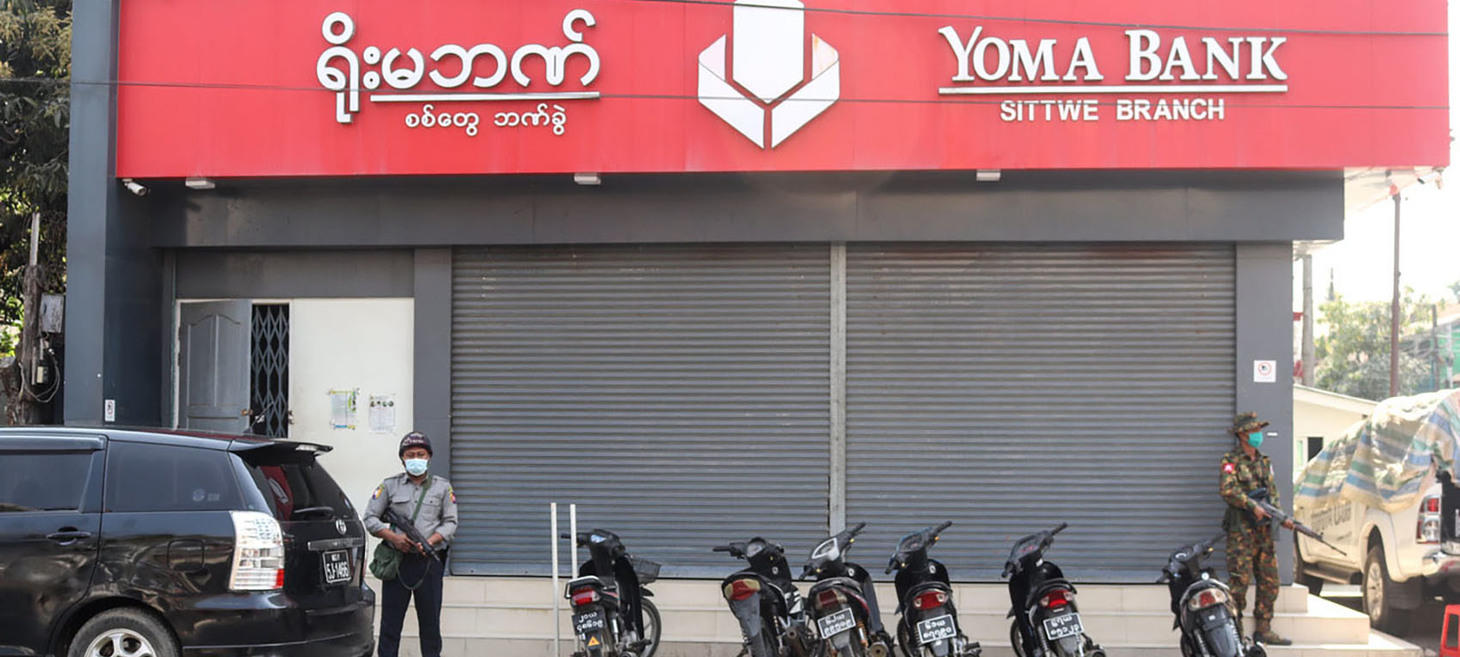
Banks Close in Sittwe as Myanmar Junta Braces for Attacks
Due to threats from Arakan Army (AA) shelling, banks in Sittwe, including both private and state-owned Myanma Economic Bank branches, have ceased operations. This closure was initiated on Monday, with staff being sent back to their hometowns, leaving only security guards and a few staff members at each branch, and preventing customers from accessing their savings or conducting transactions. The AA is actively shelling Sittwe and junta outposts in the surrounding areas, while the junta responds with shelling and airstrikes, reinforcing its Sittwe garrison. The AA has seized 14 of 17 townships in Rakhine State and Paletwa Township in Chin State since November 2023, expanding into Ayeyarwady, Magwe, and Bago regions. The Rakhine media reports money has been moved to Yangon this week.
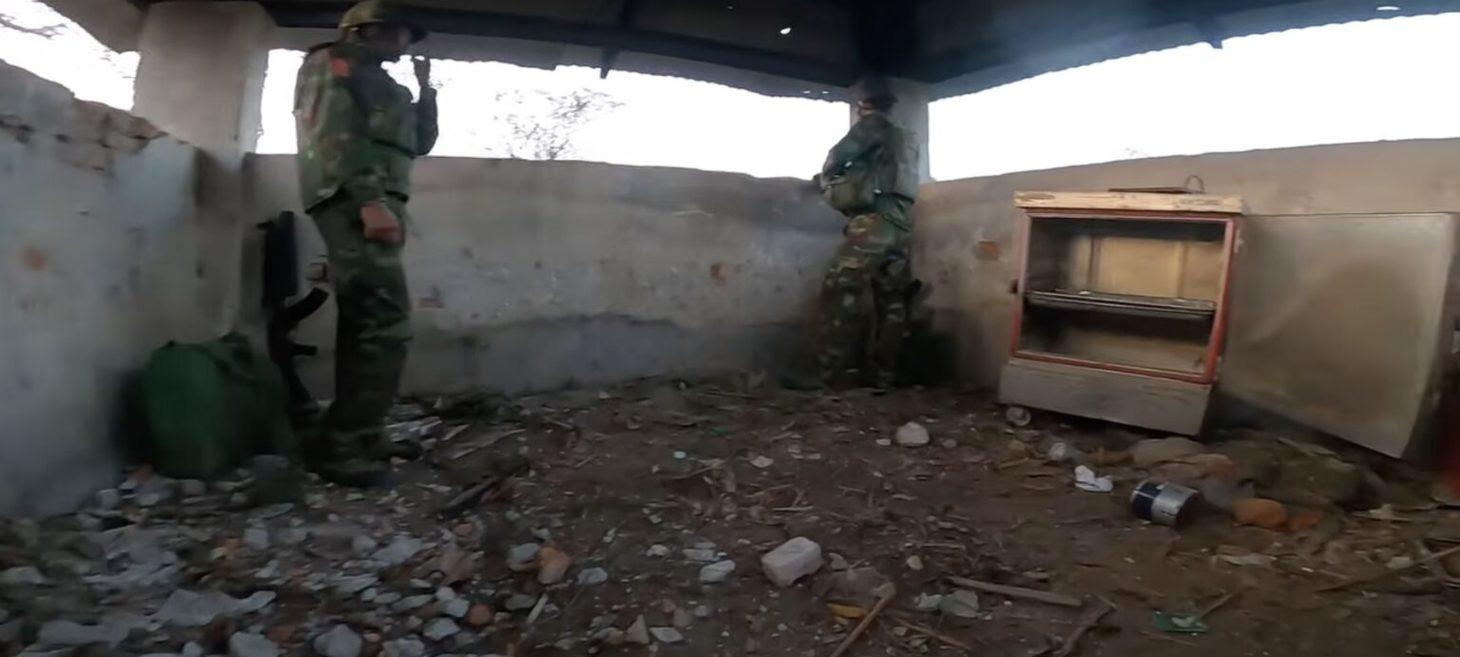
KIA-led forces take control of two battalion bases in Bhamo
The Kachin Independence Army (KIA) and allied anti-junta forces have taken control of two Myanmar army battalion bases in Bhamo Township, Kachin State, which is less than 50 miles from the China-Myanmar border. The anti-junta forces seized Infantry Battalion (IB) 236 around February 20 and are now holding the headquarters, in addition to controlling most of the territory surrounding Artillery Battalion (AB) 366, which they had captured in January. Holding these two bases puts the anti-junta forces in a better position to attack the army’s Military Operations Command 21 (MOC-21) headquarters in Bhamo, Kachin State. Clashes were intense, but no subsequent clashes have been reported as of Thursday.
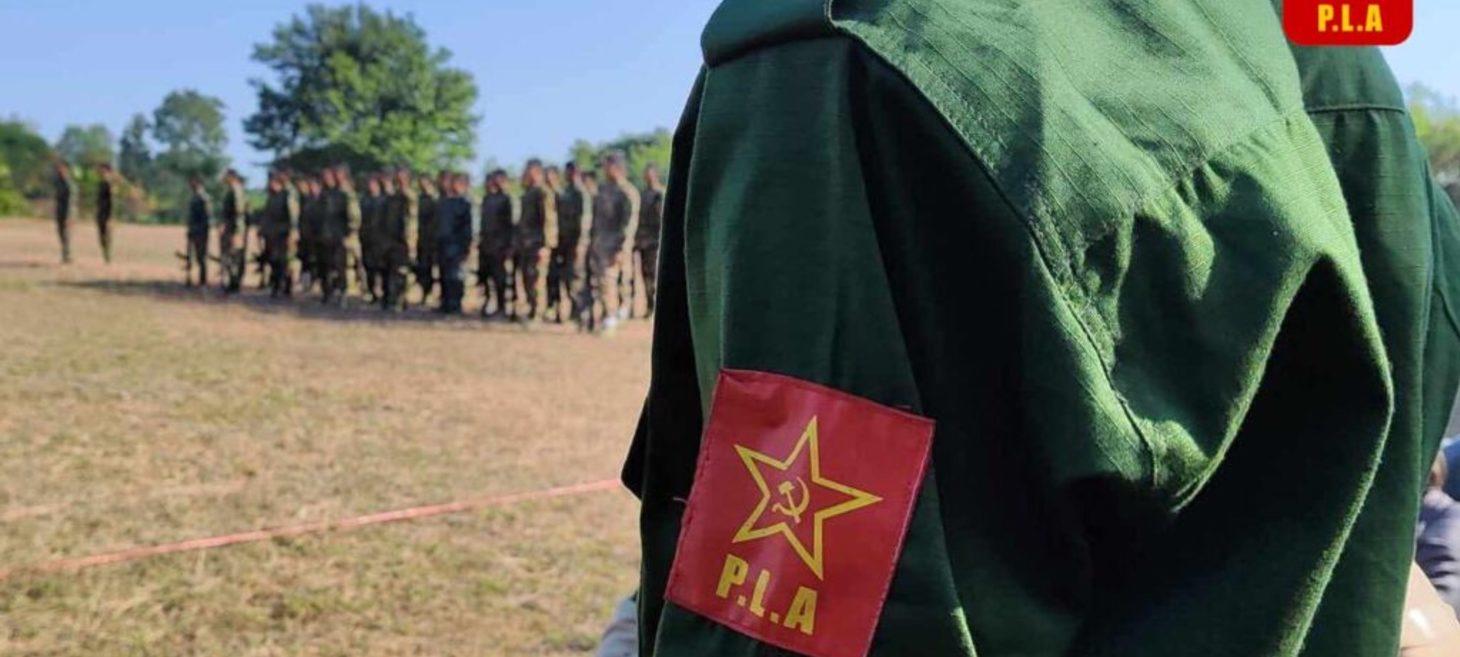
PLA launches assault on junta-backed militia camp in Mandalay Region
On February 21, 2025, the People's Liberation Army (PLA) and allied forces launched an assault on a junta-backed militia camp in Htanaungkone village, Taungtha Township, Mandalay Region, marking an escalation in clashes in central Myanmar. The village, reinforced with bunkers and around 40 troops from both military and militia forces, was attacked for over an hour. The PLA forces captured more than half of the village, seizing weapons and ammunition, but had to withdraw due to junta reinforcements from Myingyan and Taungtha. The PLA reported finding two enemy bodies in the cleared bunkers, with potential additional wounded on the junta side.
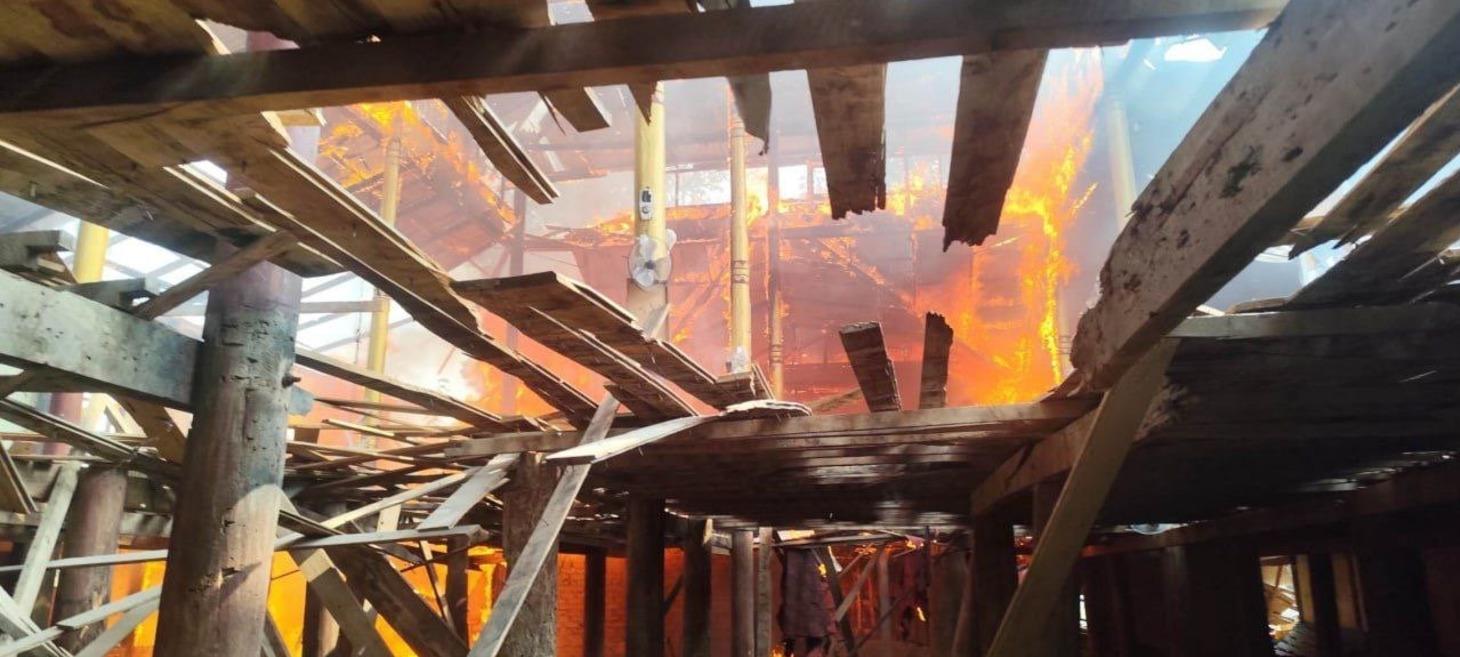
Myanmar junta bombs villages in three states
Myanmar's junta military has escalated attacks in multiple states, including Rakhine, Kachin, and Shan, resulting in numerous civilian casualties and injuries. In Rakhine State, specifically Pauktaw Township, two children were among those killed in airstrikes on villages controlled by the Arakan Army (AA). The villages of Kyauk Taung, Ma Nyin Kaing, and Sin Tet Maw were targeted on Pein Hne Chaung Island, with a total of four deaths and at least 17 injuries reported. Similarly, in Kachin State's Momauk Township, at least eight people, including children, were killed in bombing raids, as fighting intensified near the Chinese border. In northern Shan State, junta airstrikes in areas controlled by the Ta’ang National Liberation Army (TNLA) resulted in the death of an elderly woman and injuries to four other civilians. These attacks have caused extensive damage and displacement, with thousands seeking refuge in monasteries.
Conscription
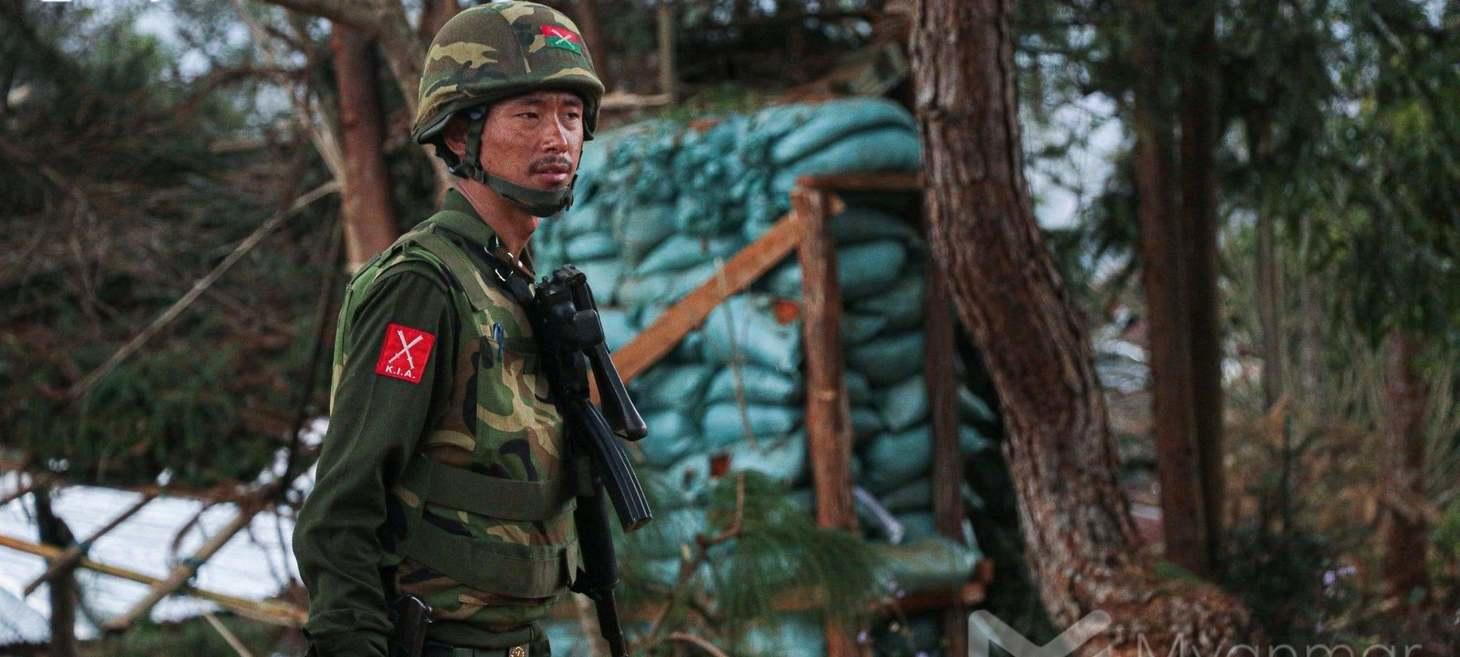
KIA forcibly conscripting young men across Kachin-Sagaing border
The Kachin Independence Army (KIA) is allegedly forcibly conscripting young men from towns along the Kachin-Sagaing border in Myanmar, specifically in Sagaing Region's Katha Township, to strengthen their fight against the junta. This recruitment drive impacts towns including Indaw, Maw Lu, and Katha, where KIA troops are reportedly entering villages to conduct forced enlistments, causing those who refuse to join to flee. These young men were already being targeted by the junta’s forced conscription. The KIA's actions add to the struggle of locals trying to avoid being forced into battle.
Crime & Narcotics

Thailand Urged to Speed Prosecution of BGF Leaders Over Myawaddy Scam Centers
Justice For Myanmar (JFM) has appealed to the Thai government to accelerate the prosecution of three Karen Border Guard Force (BGF) leaders—Colonel Saw Chit Thu, Lieutenant Colonel Mote Thone, and Major Tin Win—by requesting the court to issue arrest warrants against them for alleged involvement in human trafficking related to scam operations in Myawaddy, Karen State. These online scam centers have grown since the 2021 coup, with many relocating to Myawaddy. The BGF, particularly Saw Chit Thu, has been implicated in these scams, as well as illegal casinos and online gambling operations. Saw Chit Thu and his children own nine Karen BGF companies, including two cyber scam compounds. Tin Win and his wife control companies contracted to import power from Thailand to power scam centers and online casino operations in Myawaddy Township. Following pressure, Thailand cut off electricity, internet, and fuel to areas in Myanmar, including BGF-controlled territory. The Myanmar junta reported that thousands of illegal foreign migrants were found at scam centers and detained, with many already repatriated through Thailand.
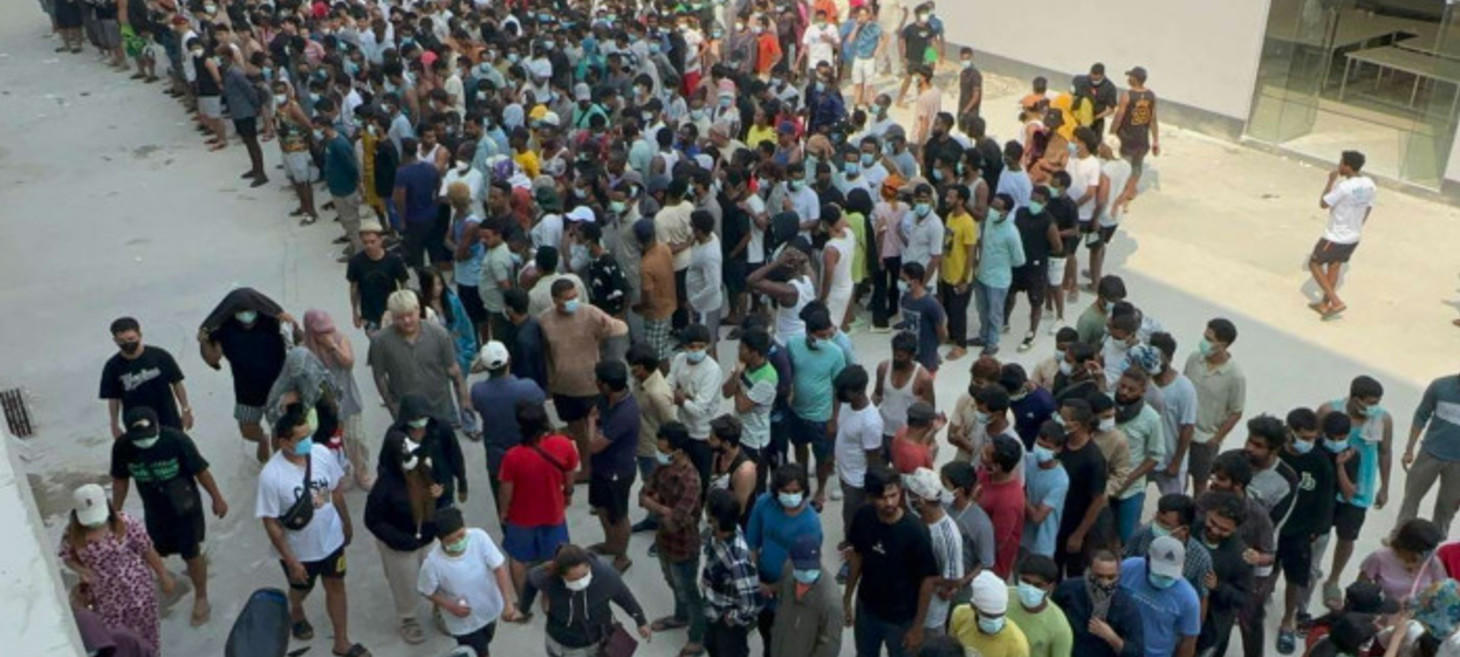
Thousands in limbo on Thai-Myanmar border after scam centre crackdown
Following a multinational crackdown on online scam centers in Myanmar, thousands of foreigners are in limbo on the Thai-Myanmar border. Armed groups, including the Karen National Army (KNA), the Democratic Karen Buddhist Army (DKBA), and the Karen Border Guard Force (BGF), are holding these former scam workers. Around 7,000 individuals are held by the KNA and DKBA, while the BGF holds 6,500, many in unsanitary conditions. Thailand is struggling to respond due to a lack of capacity to accept more people unless embassies repatriate them. Agencies are planning for future handovers based on the readiness of embassies or countries of origin. The majority of the workers are Chinese, but about 1,000 are from other foreign countries. The crackdown and rescue efforts were initiated following increased scrutiny of these scam centers, including the high-profile case of a Chinese actor who was lured and abducted into working at one of the centers.
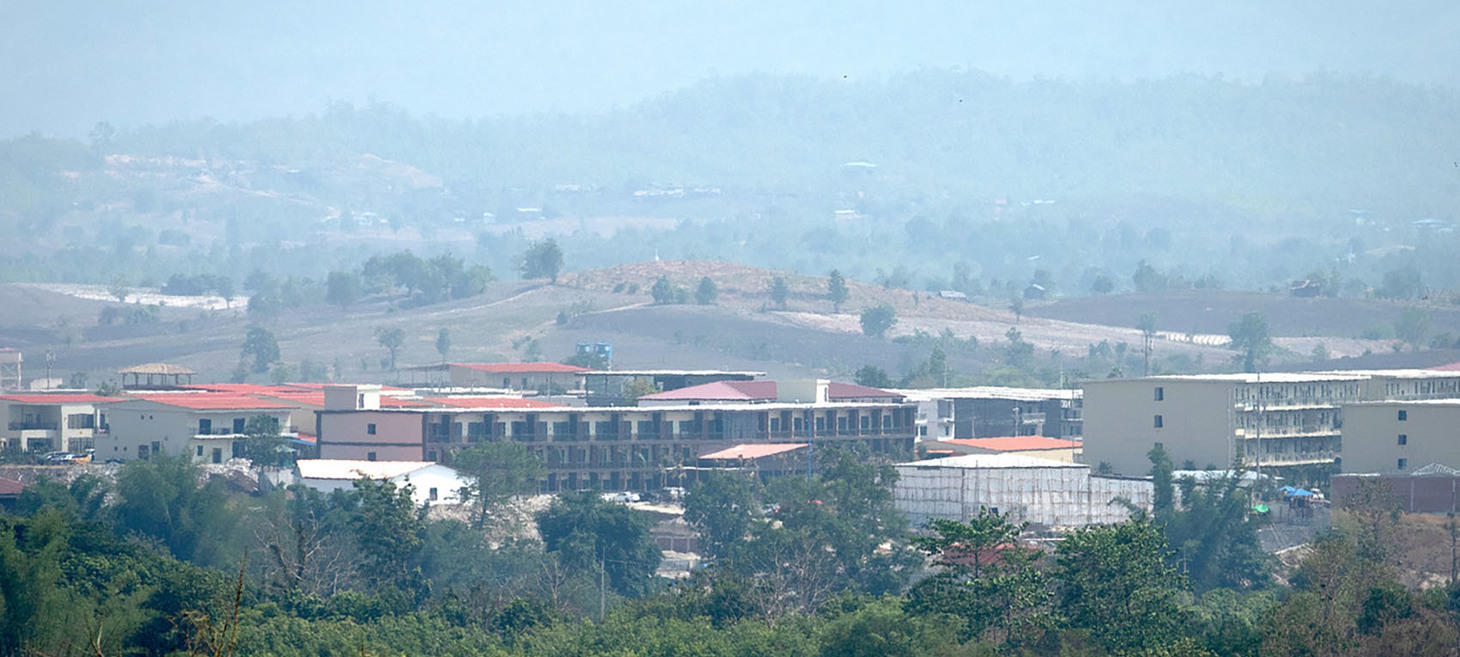
Myanmar Junta Allies ‘Blockade’ Scam Hub
The Karen State Border Guard Force (BGF), which is aligned with the junta, has announced a blockade of the KK Park scam hub located in Myawaddy Township, near Maw Hto Talay village, across the Moei River from Mae Ku in Thailand. According to a BGF spokesman, the militia intends to raid KK Park after clearing scam centers in Shwe Kokko and other areas of Myawaddy. KK Park, which began construction in March 2020 and started operations in 2021, has gained notoriety for human trafficking, online fraud, forced labor, and torture. It allegedly houses casinos, hotels, restaurants, nightclubs, brothels, and online centers involved in romance scams and fraudulent investment schemes. The Karen National Union (KNU) is believed to have developed KK Park with China's Huanya International Holding Group, although Mulaei Alin Co of Myanmar was initially involved before being replaced by Trust Star Co Ltd in 2022.
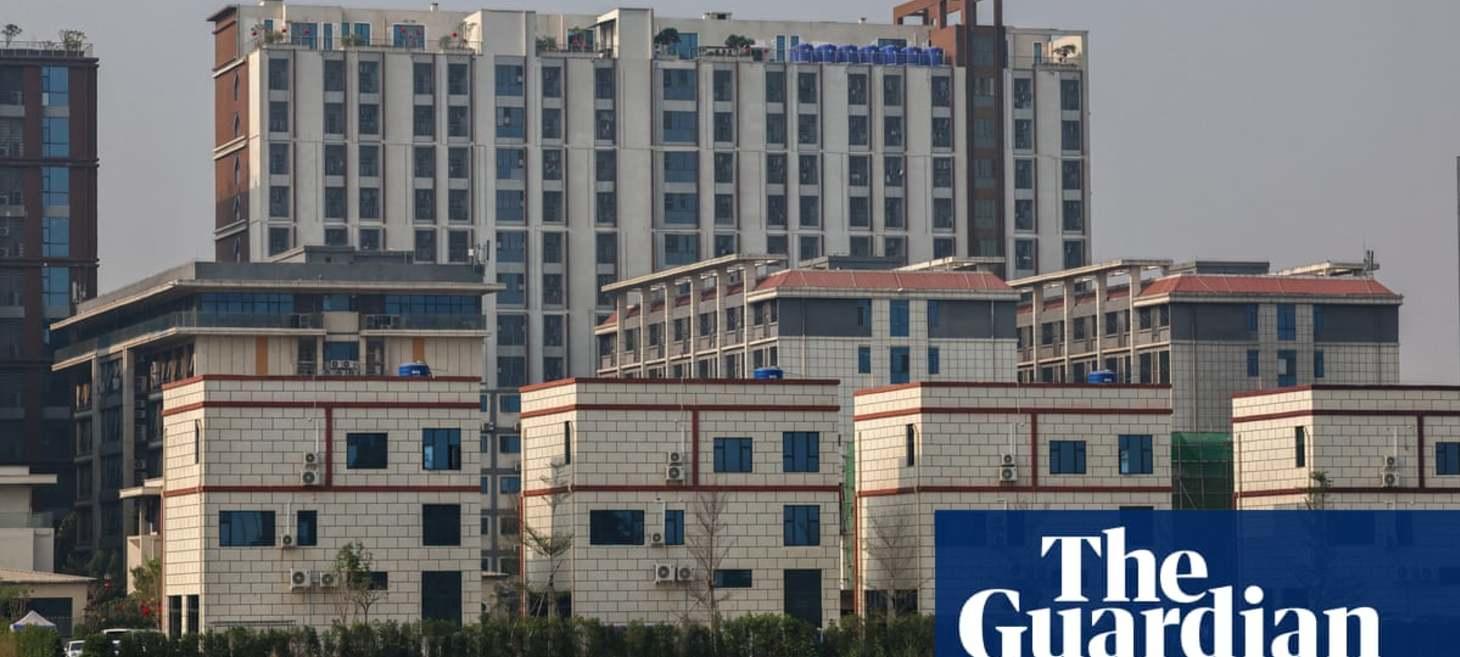
Tens of thousands could be held in illegal scam compounds in Myanmar, Thai police general says
Thailand is actively cracking down on illegal scam compounds in Myanmar near the Thai border, which are run by Chinese criminal gangs and house tens of thousands of people from various countries who are forced to carry out online scams. This crackdown involves cutting off electricity and fuel supplies to these compounds. Victims are often lured with promises of comfortable office jobs but are then held against their will, sometimes facing violence if they refuse to participate in the scams. These scams generate billions of dollars annually, primarily in Cambodia, Myanmar, and Laos. Thai authorities are working to repatriate foreign nationals, screening them to determine if they were victims of human trafficking or willingly involved in the scams. The repatriation process is a significant burden, and some embassies have not committed to funding the repatriation of their citizens.
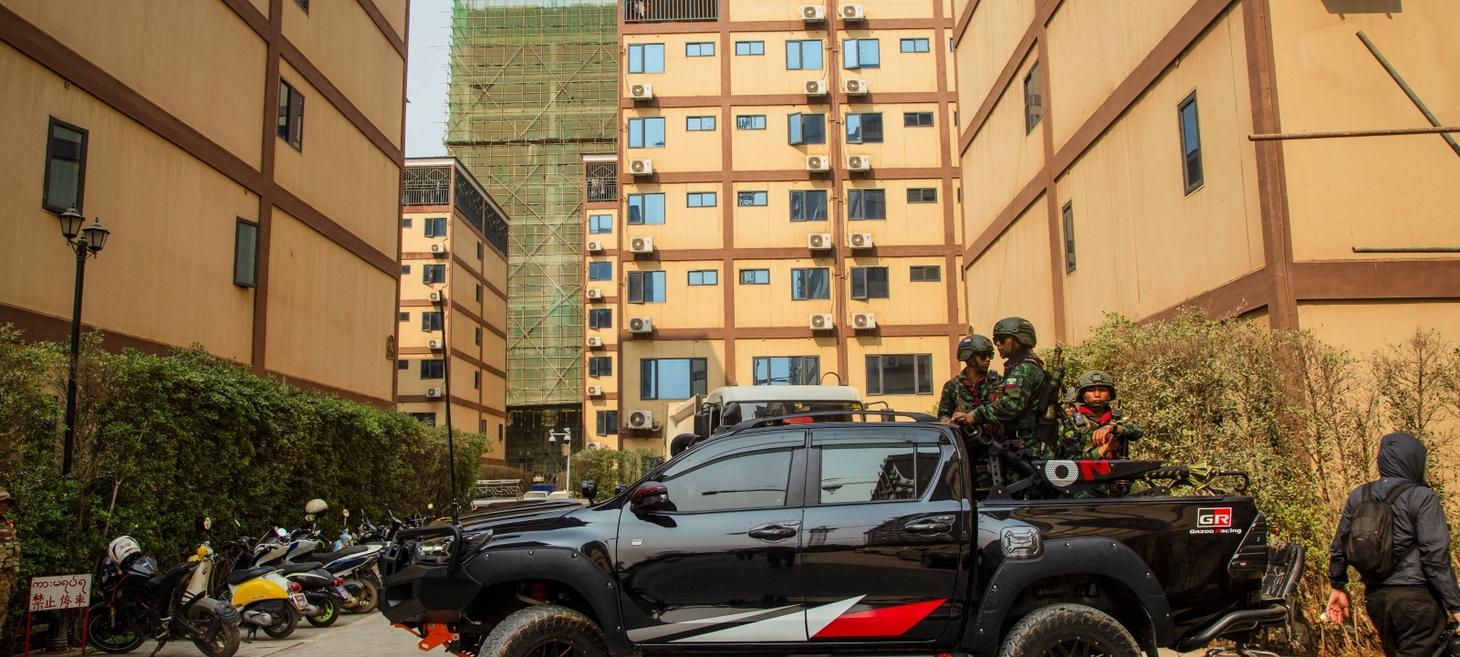
Battered Myanmar scam centre workers wait for deportation to China
Workers at online scam centers in Myanmar, many of whom are Chinese, are awaiting deportation to China as China and Thailand finalize repatriation plans. These scam centers, which have flourished in Myanmar's borderlands, are staffed by foreigners who claim they were trafficked and forced to defraud people. The Kayin State Border Guard Force (BGF) is preparing to deport 10,000 individuals linked to these scam operations in areas they control along the Thai border. Many of these workers have been subjected to torture and abuse, with some bearing visible injuries. China's Public Security Assistant Minister Liu Zhongyi met with Thai ministers to arrange the handover of an initial group of 600 Chinese nationals. Thailand's Prime Minister mentioned that around 7,000 individuals are still awaiting release from Myanmar scam centers. Scam centers have spread throughout Southeast Asia and are linked to drug smuggling and gambling.
Economy
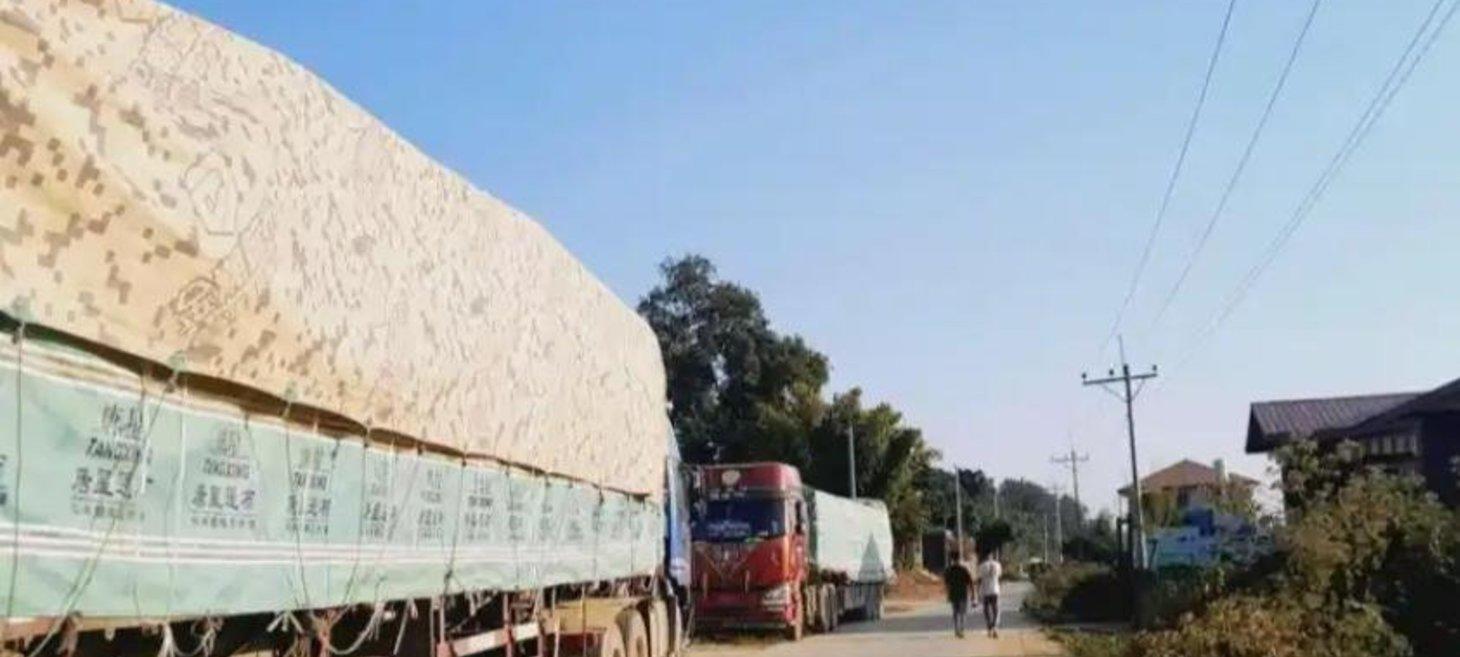
Myanmar Truck Drivers Struggle After KIA Allows Chinese Trucks Into Myanmar
Since the Kachin Independence Army (KIA) captured the Kan Paik Ti border crossing in Kachin State in November 2024, it has permitted Chinese trucks to operate in Myanmar, leading to a deprivation of work for Myanmar truck drivers. These Chinese trucks transport bananas from Chinese-owned plantations near Waingmaw Town back to China. While an official from the Association of Plantation Entrepreneurs has claimed that Chinese trucks are needed due to a shortage of Myanmar trucks and delays caused by previous checkpoints, Myanmar truck operators based in Waingmaw Town report a shortage of work. Although the KIA stated it encouraged plantation owners to prioritize Myanmar trucks, the plantations have largely preferred Chinese trucks, causing distress for local companies.
Ethnic Issues
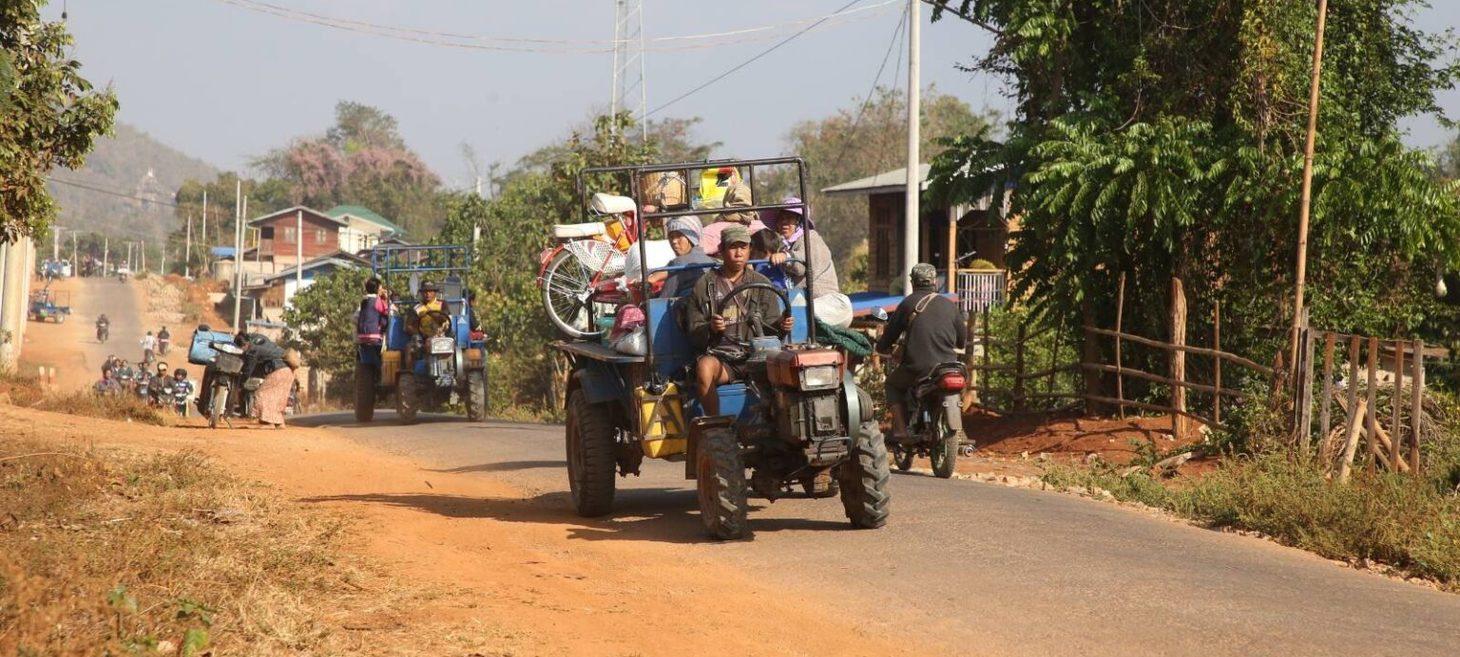
Karenni governing council to require border-crossing card as part of new reforms
The Interim Executive Council (IEC), a governing body in Karenni (Kayah) State opposed to Myanmar's military regime, plans to introduce new administrative reforms requiring outsiders to carry a border-crossing card when visiting Karenni State. The IEC conducted a census in Karenni State in 2024 and announced in February that visitors must have a card indicating authorized presence, which must be shown to Karenni authorities upon request and cannot be transferred. The council also aims to establish at least 16 township-level administrative subdivisions in Karenni territories, including Shan State’s Pekhon Township.
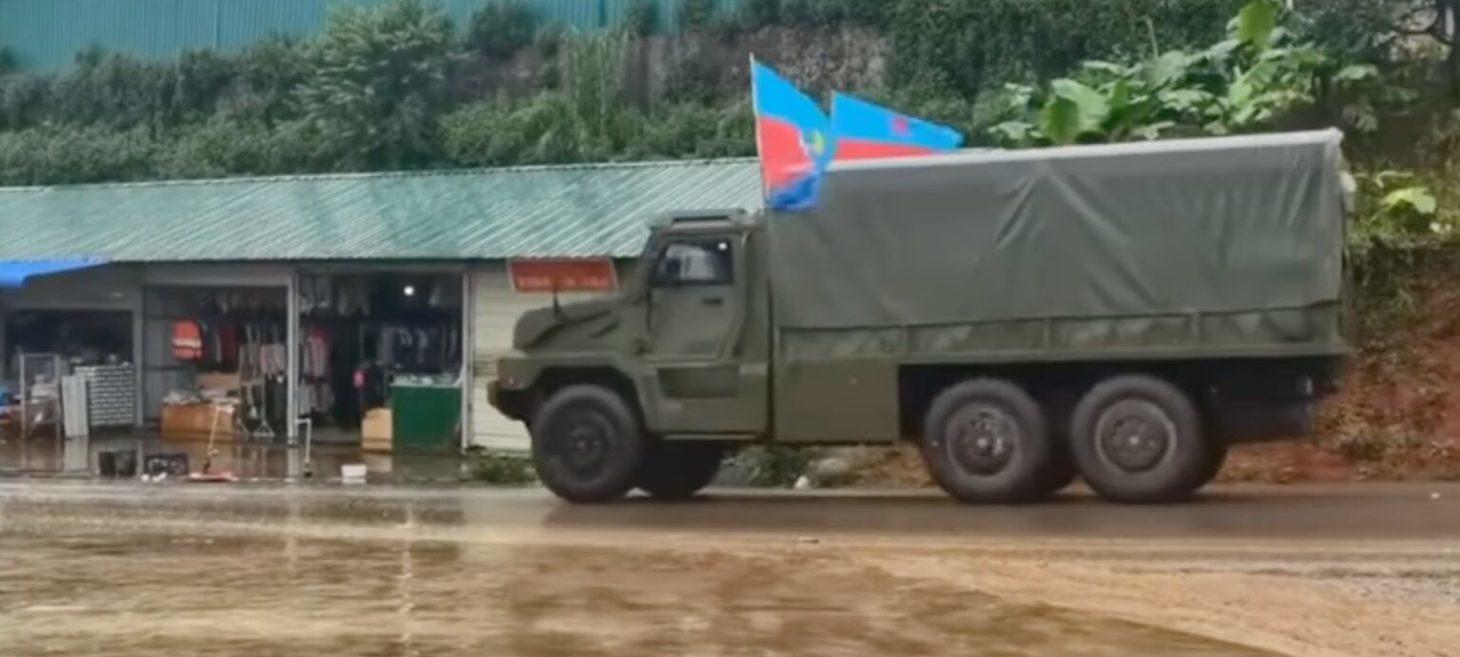
UWSA resumes mining operations near Myanmar-China border
The United Wa State Army (UWSA) is preparing to reopen a key mine in the Wa Self-Administered Region’s Man Shiang District after closing it in August 2023 to limit mineral extraction. The decision to reopen the mine was made during the UWSA’s annual meeting, where they approved nine action plans for 2025. The UWSA-controlled region is a significant source of tin ore for China, with about 70 percent of Myanmar’s tin ore production coming from the Wa region. The reopening of the mine and the approved action plans also include continuing political reforms, controlling illegal businesses, increasing renewable energy production, promoting economic development through China-Myanmar ties, and strengthening international relations, agriculture, education, and healthcare. The UWSA has maintained a neutral stance towards the anti-junta movement since the military seized power in February 2021. The regime has announced that it would combat resource extraction in resistance-held areas, which has become a major source of revenue for groups opposed to the junta.
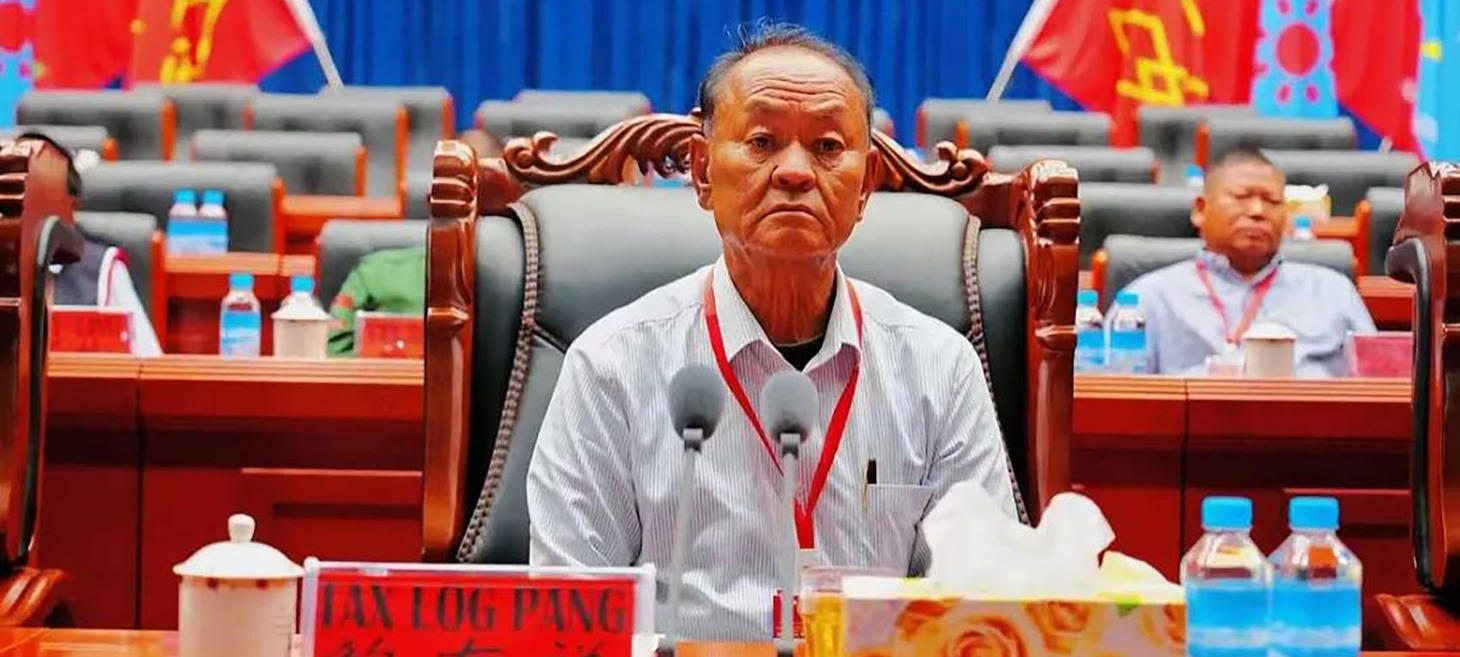
Wa State Aims to Boost Economy Through Chinese Projects
The United Wa State Army (UWSA), Myanmar's largest ethnic armed organization, recently convened its annual general meeting, during which they adopted a nine-point plan focused on stimulating economic growth through the Myanmar-China Economic Corridor. The meeting addressed political reforms, the reopening of the Mansai tin mine, and enhancements in electricity production, agriculture, education, and healthcare. The UWSA controls Wa state in northern and southern Shan State and has an estimated 30,000 soldiers. The UWSA aims to combine the territories into a formal Wa state. Despite challenges, Wa authorities aim to achieve their 2025 objectives.
Foreign Affairs
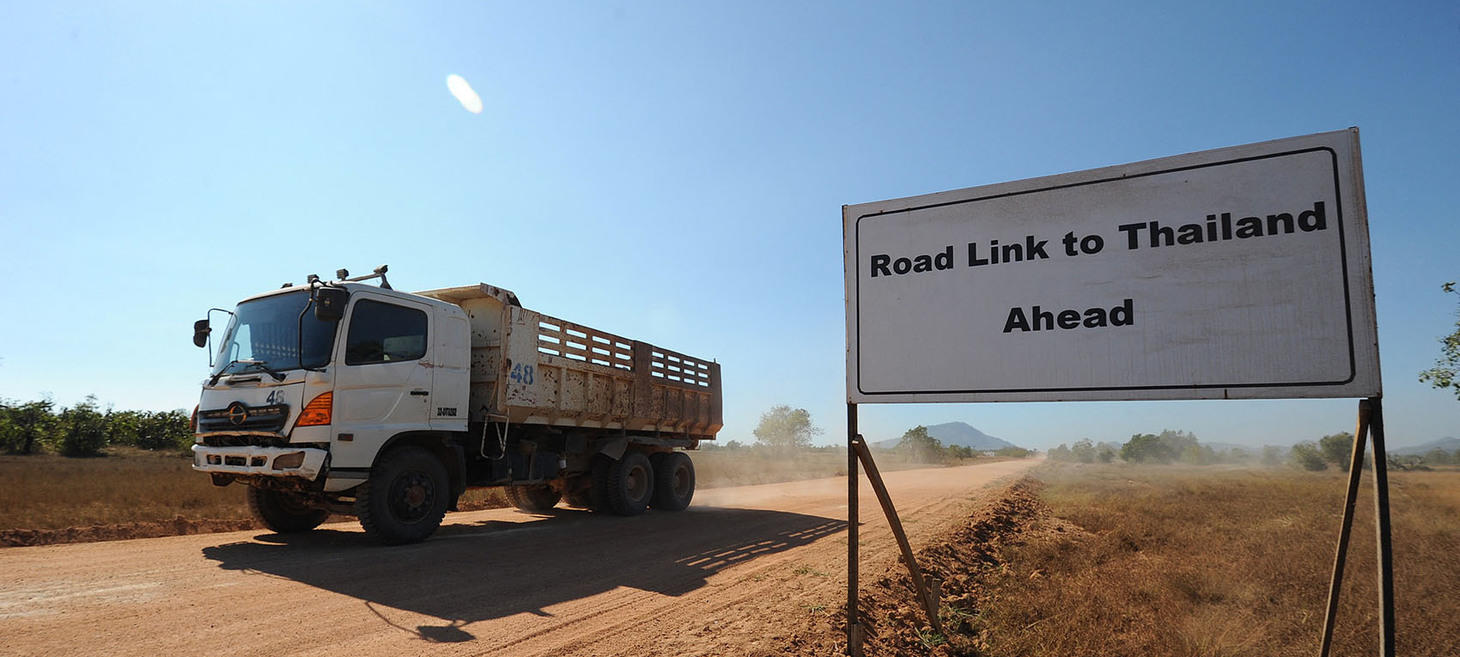
Myanmar Junta Inks Deal With Russia to Kickstart Dawei SEZ Project
On February 24, 2025, Russia and Myanmar signed an agreement to revive the stalled Dawei Special Economic Zone (SEZ) project. The agreement, signed by Russia's Minister for Economic Development, Maxim Reshetnikov, and Myanmar's junta minister for investment and foreign economic relations, Kan Zaw, includes the construction of a port, coal-fired thermal power plant, and oil refinery in Dawei. This occurred during the Myanmar-Russia Intergovernmental Commission on Trade and Economic Cooperation in Naypyitaw. The Dawei SEZ project aims to transform a 196-square-kilometer zone into Southeast Asia’s largest industrial and trade zone. The project was initiated in 2008 but faced numerous delays, leading to the cancellation of contracts with Italian-Thai Development in January 2021. Russia has become a key ally to the junta, increasing energy cooperation through projects like a gas pipeline and a planned nuclear research reactor. However, the recent agreement is threatened by ongoing conflict between junta troops and resistance groups in the Dawei SEZ-port project area.
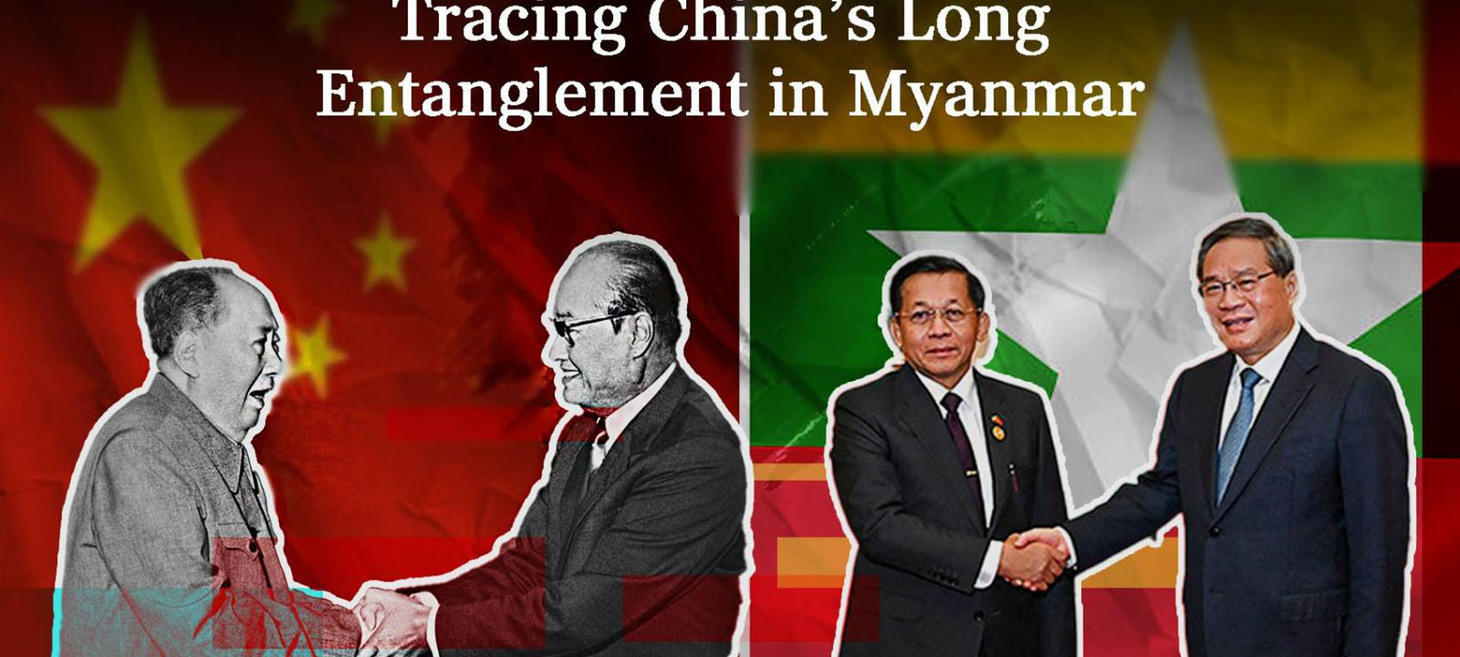
Tracing China’s Long Entanglement in Myanmar
China's relationship with Myanmar is complex and driven by strategic interests, viewing Myanmar as a crucial link to South and Southeast Asia and the Indian Ocean. Historically, China supported the Communist Party of Burma (CPB) with military aid and volunteers until the CPB's collapse in 1989. Despite this past, China emphasizes mutual respect and understanding in its relations with Myanmar, particularly after Western sanctions in the 1980s pushed Myanmar closer to Beijing. Currently, China maintains leverage over both the Myanmar military and ethnic armed organizations, positioning itself as a key player in the country's internal conflicts. China's influence is further solidified through economic corridors and trade, while the West's role remains limited.
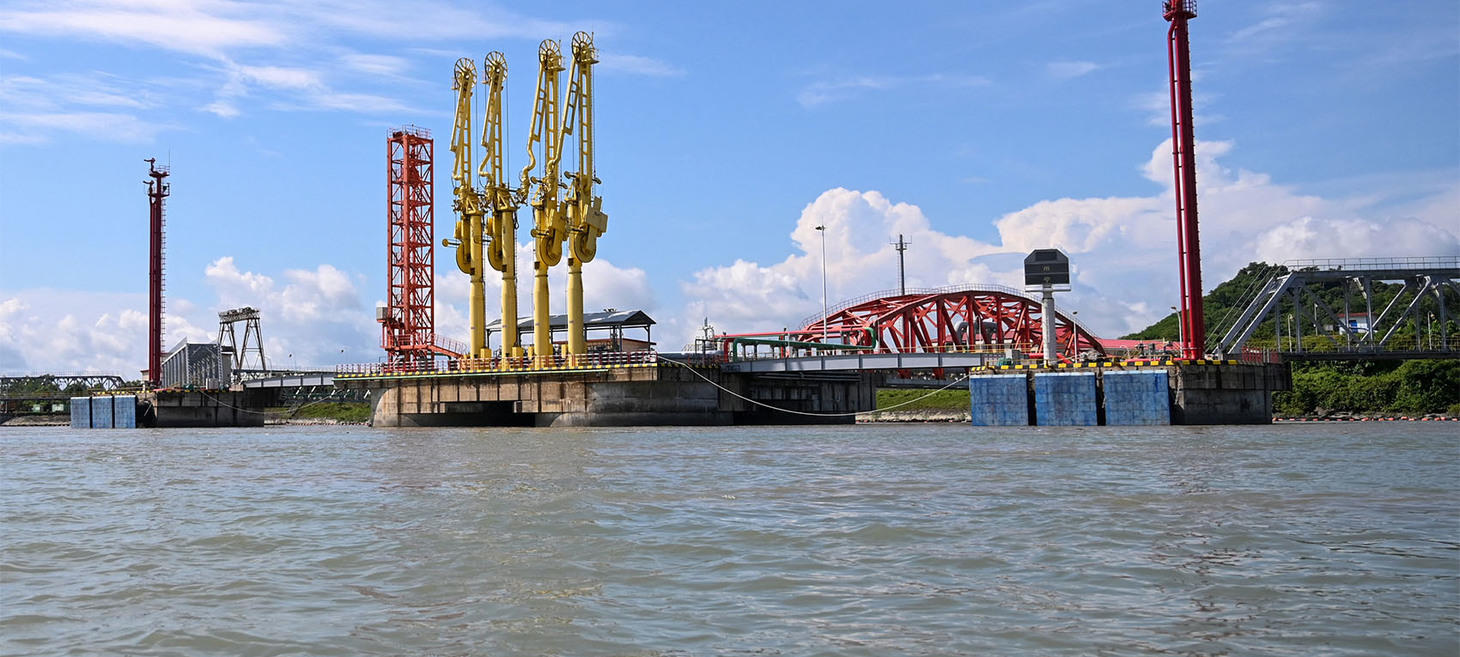
Junta Passes Law Allowing Chinese Security Firms to Operate in Myanmar
On February 19, 2025, Myanmar's military regime enacted the Private Security Services Law, which allows Chinese private security firms to operate in Myanmar. The law is seen as a way to protect China's interests, including Belt and Road Initiative projects, in areas where the junta has lost control to ethnic armed organizations. These security companies can secure Chinese projects, organizations, and public events involving Chinese citizens and equipment. They also have the authority to apprehend perpetrators of crimes committed in the areas they are providing security and hand them over to the police. The law requires that at least 75% of the security personnel be Myanmar nationals, and that the companies assist the regime in its security operations and report any threats. This move has been criticized as an infringement on national sovereignty and a way for the regime to circumvent constitutional restrictions on foreign troops.
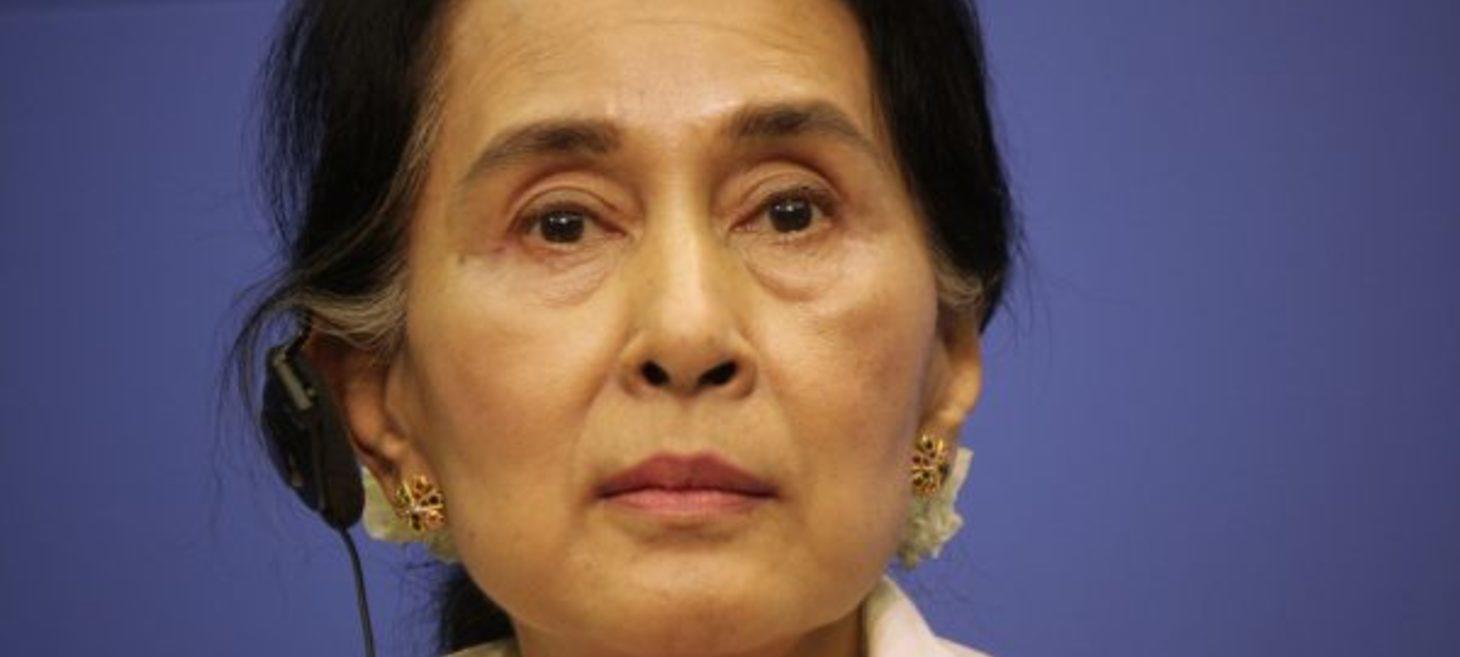
The NUG’s Troubling Response to Aung San Suu Kyi Arrest Warrant in Rohingya Genocide Case
In February 2025, an Argentine court issued arrest warrants for 25 Myanmar officials, including Aung San Suu Kyi, for their role in the Rohingya genocide. The National Unity Government (NUG) responded with a statement that attempted to absolve civilian leaders of responsibility, arguing that only the military was responsible for the atrocities. This is demonstrably false because Aung San Suu Kyi's government provided political cover and defended the military at the ICJ. The NUG's statement also called for Aung San Suu Kyi and Htin Kyaw to be removed from the case, calling their inclusion "a misguided and erroneous legal accusation". The Burmese Rohingya Organization U.K. (BROUK), which initiated the case, initially tried to obscure the fact that Aung San Suu Kyi was among those facing an arrest warrant. The NUG statement is a carefully crafted piece of political damage control that selectively assigns blame, rewrites history, and pressures Rohingya to settle for an incomplete version of justice.
Humanitarian
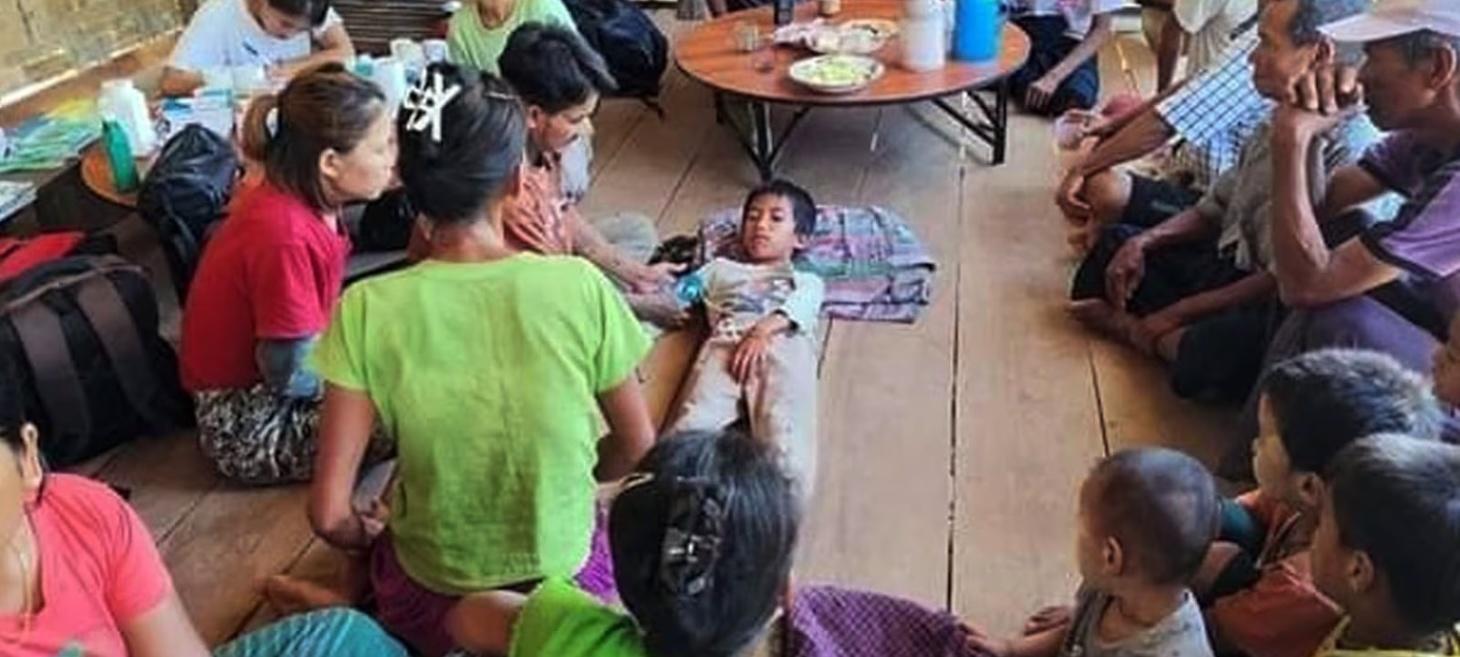
Junta blockade on medicine leaves Myanmar’s displaced reeling - Radio Free Asia
In Myanmar, restrictions by the junta on the transport of medicine in war-torn regions such as Rakhine, Chin, and Sagaing have created critical shortages for displaced civilians, who are dealing with outbreaks of disease. These restrictions, aimed at preventing medical supplies from reaching rebel groups, have severely impacted more than 3.5 million displaced people, leading to outbreaks of diseases like diarrhea and skin conditions due to poor living conditions and contaminated water. The scarcity of medicine has increased costs, such as a 10-tablet pack of paracetamol costing 10 times more than before the coup. The Chin Human Rights Organization has stated that the junta's actions constitute a war crime, as they deny the population's right to life. Since the coup, nearly 140 health workers have been killed, and approximately 840 have been arrested in Myanmar.
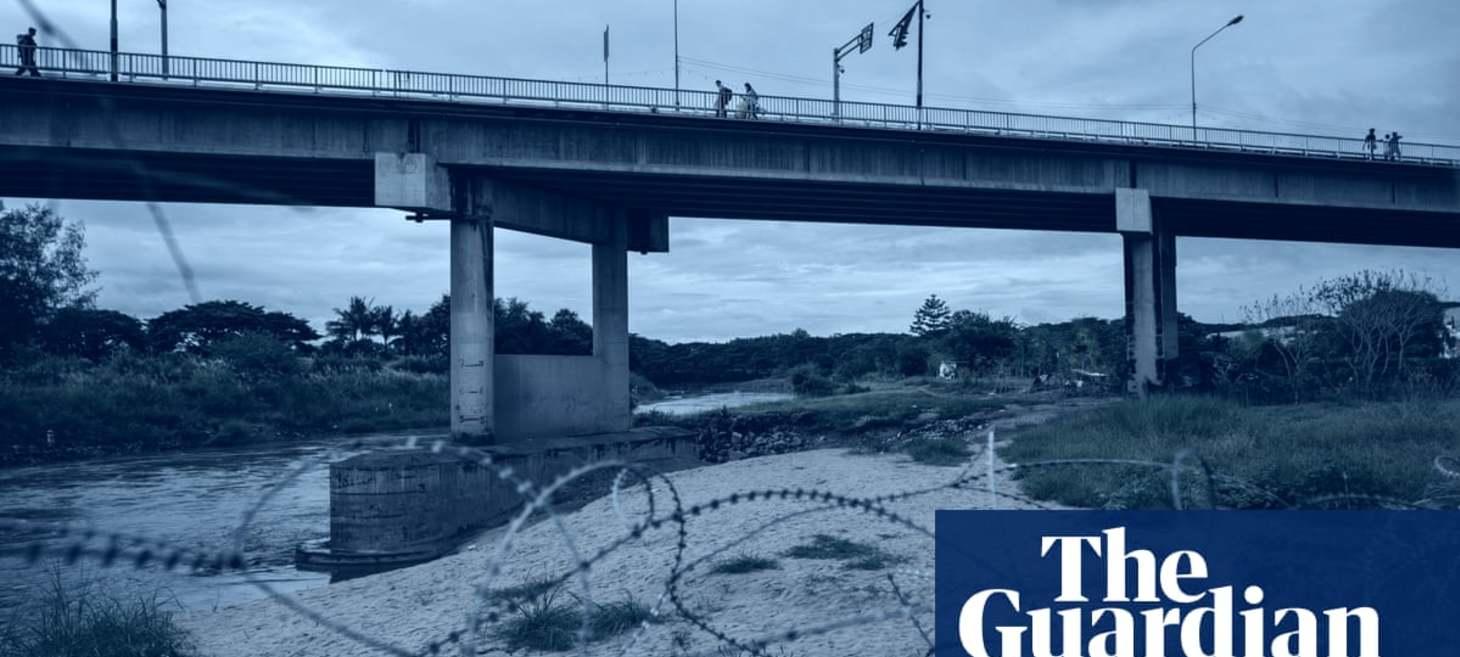
‘We have nothing now’: Myanmar’s exiled media face existential crisis after Trump severs aid
Due to President Trump's decision to freeze foreign aid, organizations that document atrocities, corruption, and war crimes are facing an uncertain future. The USAID cuts have severely impacted exiled journalists from Myanmar, particularly those based in Mae Sot, Thailand, who risk their lives to report on the conflict-ridden homeland. These journalists face financial stress and job cuts, with some working without pay while still feeling compelled to report the situation in Myanmar. The funding freeze is expected to lead to a surge in propaganda and misinformation, with Myanmar's media being the hardest hit, and has a chilling effect across Southeast Asia, especially in countries with growing authoritarianism.
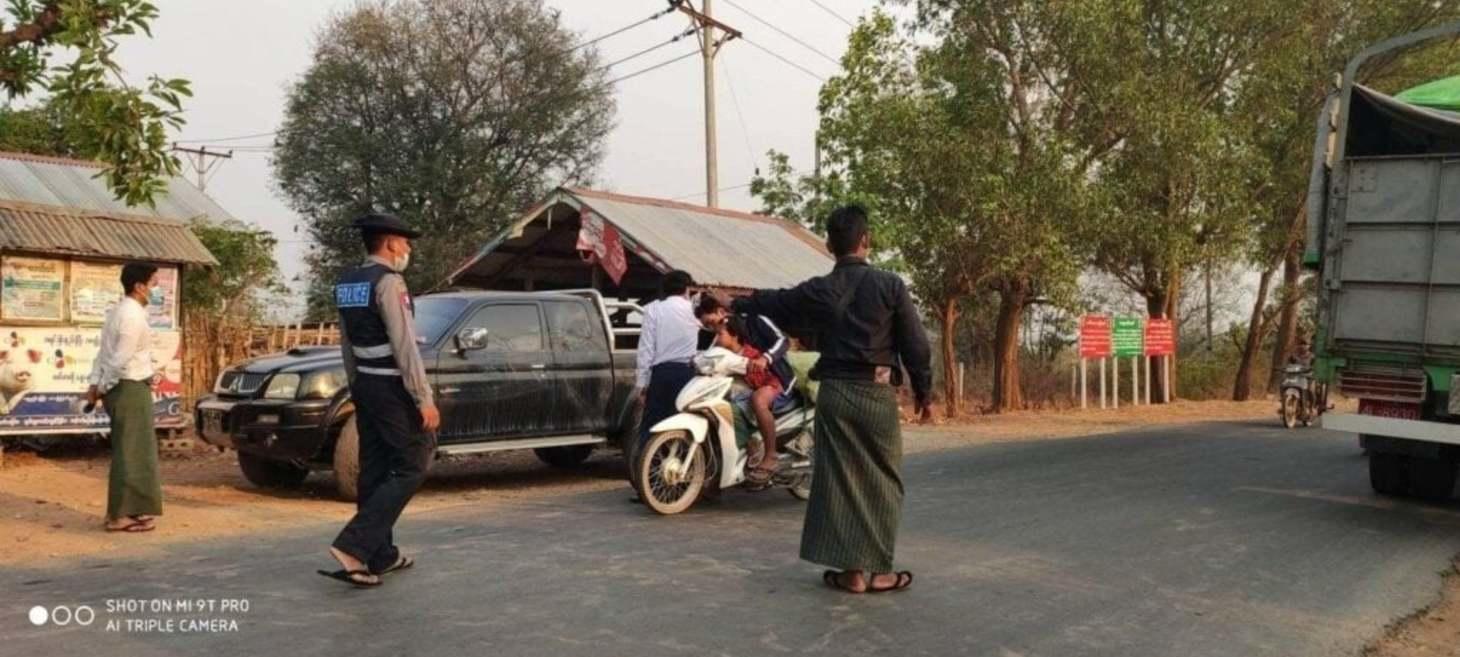
Military Checkpoint Blocks Food and Supplies for Over Five Months, Leaving Displaced Families Struggling
A military checkpoint in Hmawbi Village, Nyaung Shwe Township, Shan State, has been blocking food and supplies from reaching displaced families since October 2024. This blockade restricts essential items like rice, cooking oil, medicine, and household fuel, forcing people to depend on limited local resources. Only small amounts of personal food and drinks are allowed through, with larger supplies being confiscated or requiring payment. Both the military and the Pa-O National Organization (PNO) militia have restricted humanitarian aid, leading to skyrocketing food prices. The checkpoint, located at a key intersection connecting several major roads, has gained a reputation for excessive fees and strict inspections, deepening the crisis for displaced families.
Telecommunications

Myanmar leads global internet shutdowns in 2024
A recent report by Access Now and the #KeepItOn coalition indicates that Myanmar has become the global leader in implementing internet shutdowns, surpassing India, who held the position for six consecutive years. In 2024, Myanmar accounted for 85 shutdowns, primarily as a response by the regime to the ongoing civil war since 2021, which often coincided with severe human rights abuses. While India had 84 shutdowns, Pakistan recorded its highest number ever with 21, and Russia imposed 19 shutdowns during its invasion of Ukraine. Other countries, including Bangladesh, Malaysia, and Thailand, also contributed to what was noted as the worst year on record for internet shutdowns, reflecting a concerning global trend of disrupting access to information.